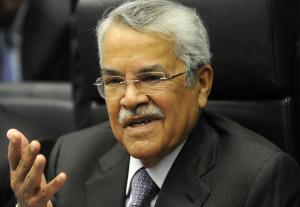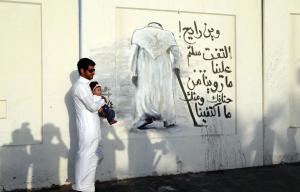Riyadh (AFP) - Saudi Arabia's new King Salman further cemented his hold on power, with a sweeping shakeup that saw two sons of the late King Abdullah fired, and the heads of intelligence and other key agencies replaced alongside a cabinet shuffle.
Top officials from the Ports Authority, the National Anti-Corruption Commission and the conservative Islamic kingdom's religious police were among those let go.
The new appointments came a week after Salman acceded to the throne following the death of Abdullah, aged about 90.
Salman also reached out directly to his subjects on Thursday. One of his more than 30 decrees ordered "two months' basic salary to all Saudi government civil and military employees," the Saudi Press Agency (SPA) said.
Students and pensioners got similar bonuses.
"Dear people: You deserve more and whatever I do will not be able to give you what you deserve," the king said later on his official Twitter account.
He asked his citizens to "not forget me in your prayers".
SPA said Salman "issued a royal order today, relieving Prince Khalid bin Bandar bin Abdul Aziz al-Saud, Chief of General Intelligence, of his post."
View gallery

Saudi Arabia's influential oil minister Ali al-Naimi, seen here during a 2014 Opec meeting in Vi …
General Khalid bin Ali bin Abdullah al-Humaidan became the new intelligence chief, holding cabinet rank.
The change comes after authorities in the kingdom last year blamed suspects linked to the Islamic State extremist group for shooting and wounding a Dane, and for gunning down minority Shiites.
A separate decree said Prince Bandar bin Sultan, a nephew of Abdullah, was removed from his posts as Secretary General of the National Security Council and adviser to the king.
Prince Bandar was the kingdom's ambassador to the United States for 22 years until 2005 before moving to Saudi Arabia's Security Council.
Two sons of the late monarch were also fired: Prince Mishaal, governor of the Mecca region, and Prince Turki, who governed the capital Riyadh, according to the decrees broadcast on Saudi television.
- Super-ministry -
Another of Abdullah's sons, Prince Miteb, retained his position as minister in charge of the National Guard, a parallel army of around 200,000 men.
View gallery

A Saudi carrying his baby poses at a mural dedicated to late King Abdullah with a slogan reading &qu …
Salman, 79, a half-brother of Abdullah, named a 31-member cabinet whose new faces include the ministers for culture and information, social affairs, civil service, and communications and information technology, among others.
Oil Minister Ali al-Naimi, Foreign Minister Prince Saud al-Faisal, and Finance Minister Ibrahim al-Assaf stayed in the cabinet of the world's leading oil exporter.
A 50 percent fall in global oil prices since last June has left Saudi Arabia projecting its first budget deficit since 2011, but government spending is set to continue.
Salman merged the ministries of higher education and education, naming Azzam bin Mohammed al-Dakheel to head the super-ministry.
Saudi Arabia is trying to improve its basic education system and has built more universities as it seeks to diversify its oil-dependent economy.
Another decree replaced the chief of the country's stock market regulator, ahead of a mid-year target for opening the Arab world's largest bourse to foreign investors.
Hours after Abdullah died on January 23 Salman appointed his son, Prince Mohammed bin Salman, as defence minister.
Powerful Interior Minister Prince Mohammed bin Nayef became second in line to the throne, while Deputy Crown Prince Moqren, 69, was elevated to king-in-waiting.
Moqren would reign as the last son of the kingdom's founder, Abdul Aziz bin Saud, leaving bin Nayef as the first of the "second generation," or grandsons of Abdul Aziz.
In March 2014, King Abdullah named Moqren to the new position of deputy crown prince with the aim of smoothing succession hurdles.
The appointment of Prince Mohammed bin Nayef helps to solidify control by the new king's Sudayri branch of the royal family.
Their influence had waned under King Abdullah.
Regional heavyweight Saudi Arabia is the birthplace of Islam and home to the holy cities of Mecca and Medina.
Along with other countries in the Gulf, Saudi Arabia has joined a US-led air campaign against the Islamic State group that has seized parts of Syria and neighbouring Iraq.